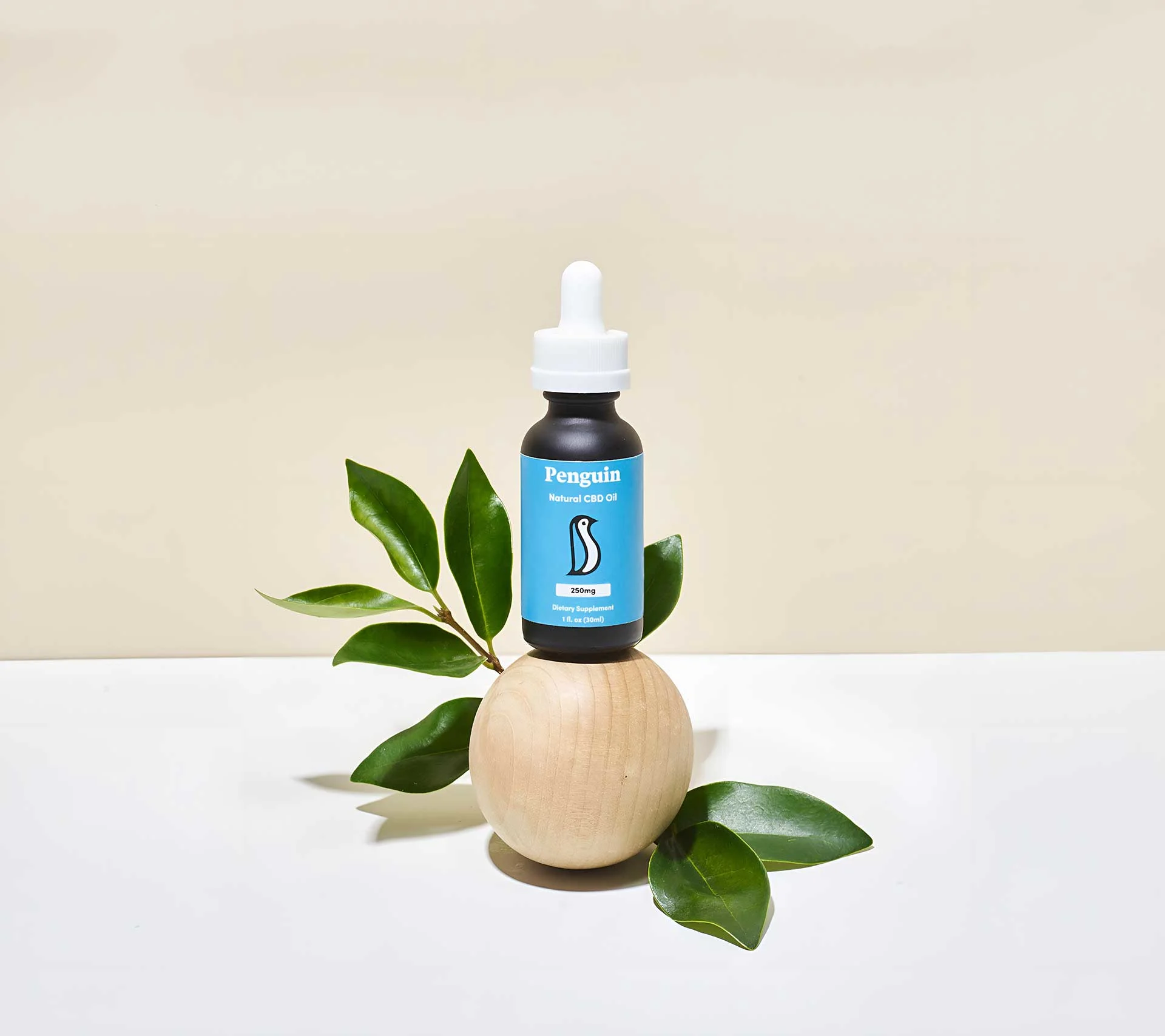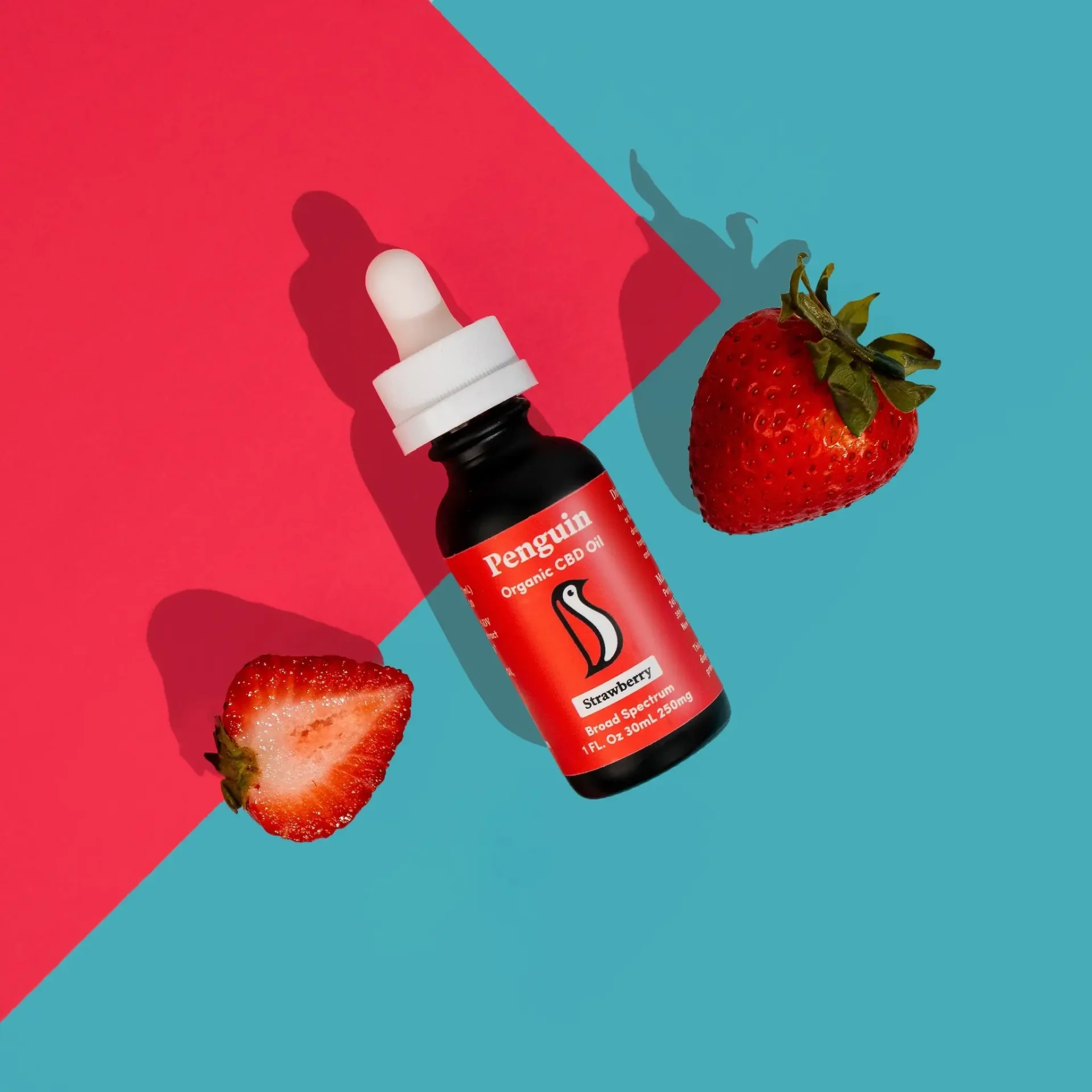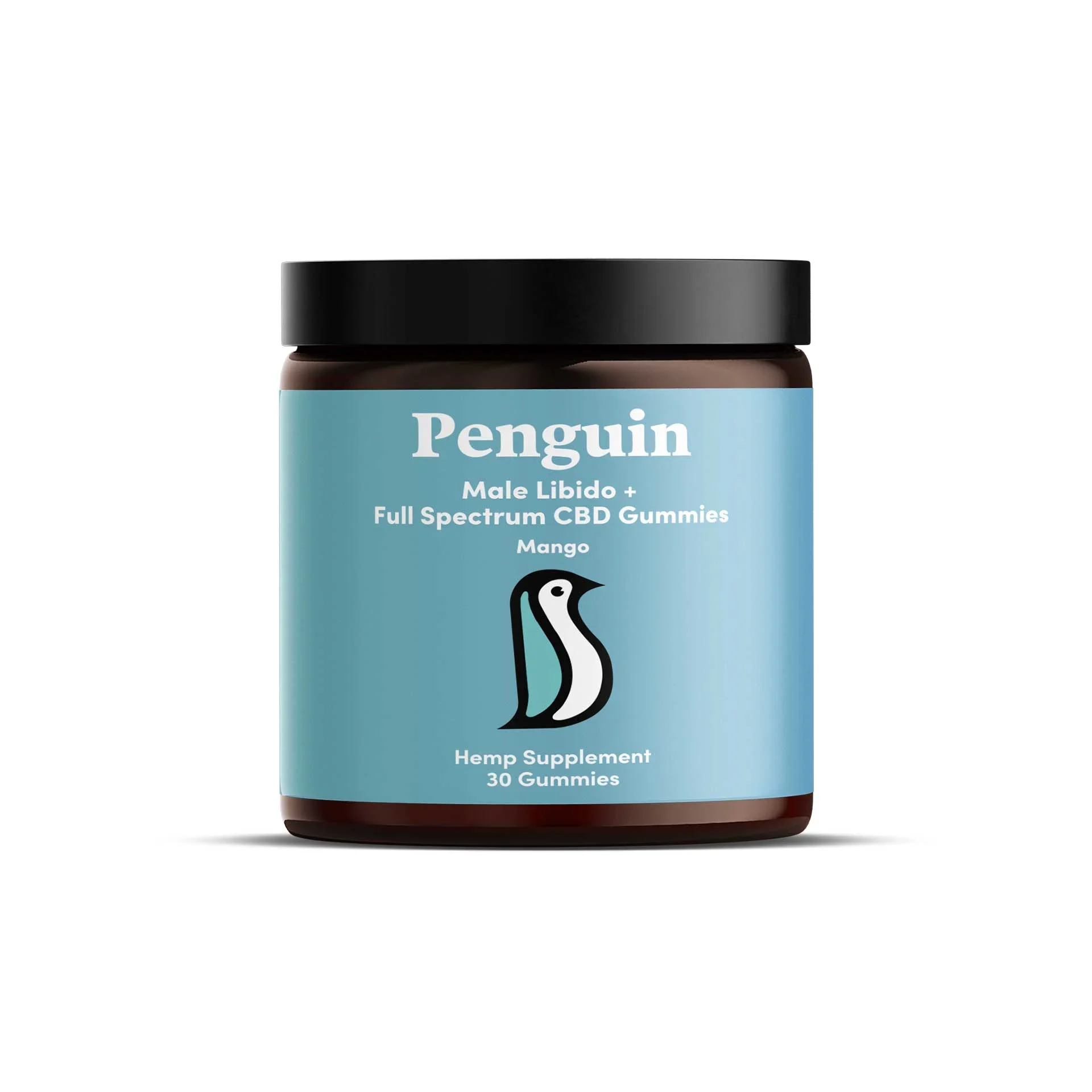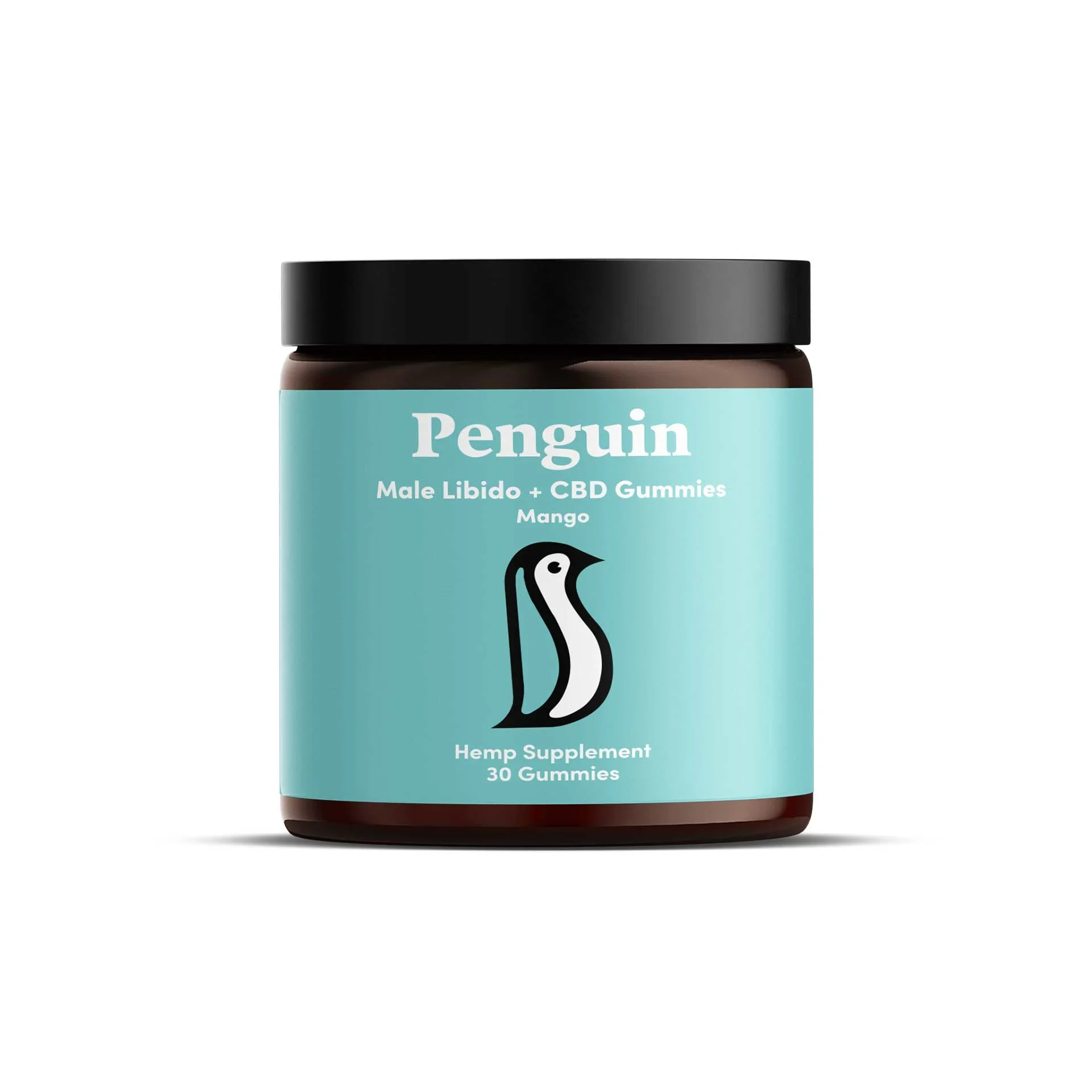CBC (Cannabichromene): The Ultimate Guide to This Cannabinoid
 By Penguin CBD
By Penguin CBDYou'll find CBD products at your local gas station, the last remaining video rental store and even perhaps sitting on the counter of your local pharmacy. They are practically everywhere, in many different forms, from oils to sprays, and even coffee.
As the market has matured, a growing number of phytocannabinoids are available for consumption. Now, people are ingesting everything from CBDA to CBG to CBC.
What exactly is CBC, the cannabinoid palindrome? CBC stands for cannabichromene, a fundamental phytocannabinoid that may not be as well known as its counterparts, but is no less surprising.
What Are Phytocannabinoids?
Cannabinoids are a general class of compounds found in nature. As humans, we produce them in our own endocannabinoid system (ECS). Plants produce them as phytocannabinoids. One of these, the psychoactive compound THC, is responsible for the notorious reputation of cannabis consumption.
However, there are a variety of chemical compounds found in cannabis plants, and there are well over 100 different types of phytocannabinoids. Most of these are present in the cannabis plant in such small quantities that they are nearly negligible in most of today’s commercial products.
So, what do cannabinoids do? They interact with the ECS by binding to cannabinoid receptors located throughout the human body. Effects of this interaction vary, and are dependent upon such variables as:
- Which cannabinoid receptor in the endocannabinoid system they are compatible with.
- The amount of cannabinoids ingested.
- The profile of cannabinoids consumed.
- Personal data points such as weight, height and gender.
Of course, not all of these cannabinoids are well known or researched, which led to the initial misconception that cannabis was simply a psychoactive and recreational drug. Some of the cannabinoids are better researched than others, and thus we have more information about their individual effects.
Which Cannabinoids Are the Most Popular?
Some of the better-known cannabinoids are not direct products of cannabis; rather, they are often derived from the decarboxylation of a precursor via heat activation. Cannabis produces several of these precursors in the form of cannabinoid acids. Some of these famous precursors include:
- Cannabigerolic acid (CBGA)
- Tetrahydrocannabinolic acid (THCA)
- Cannabidiolic acid (CBDA)
- Cannabichromenic acid (CBCA)
- Cannabigerovarinic acid (CBGVA)
- Tetrahydrocanabivarinic acid (THCVA)
- Cannabidivarinic acid (CBDVA)
- Cannabichromevarinic acid (CBCVA)
The major cannabinoid acids in the above list are CBGA, THCA, CBDA and CBCA. When exposed to heat, these become the compounds we are more familiar with: CBG (cannabigerol), THC (tetrahydrocannabinol), CBD (cannabidiol) and CBC (cannabichromene), respectively.
Getting Down with CBC
CBC, short for cannabichromene, is a non-psychoactive, non-euphoric and nonintoxicating phytocannabinoid, meaning it does not make you high. According to Jahan P. Marcu, CBC is considered to be the second most prominent, and one of the better researched, cannabinoids in cannabis plants.
A series of studies have been done to determine how much CBC is in the cannabis plant. The studies found that the abundance of CBC can vary widely with age, morphology and the conditions of growth of the cannabis plant.
To get high-purity CBC for pharmaceutical use, plants possessing the prolonged juvenile chemotype morphological variation (PJC) are grown under reduced light levels to increase CBC yield. Put more simply: Certain plants are kept in their vegetative states to change their chemical output using light manipulation.
The cannabinoid profile of a plant can contain as much as 64 percent of CBC. The reason why the most popular varieties of today contain little CBC is due to the selection process, as we currently select based on THC and CBD content.
Just like THC would naturally degrade to form CBN (cannabinol) in the presence of heat and light, a similar conversion is undergone by CBC to form CBL (cannabicyclol). However similar these cannabinoids might be, the difference in effect is a function of the endocannabinoid system. While THC binds to the CB1 or CB2 to produce its euphoric effect, CBD has little affinity for CB receptors. Rather, it prefers to bind to TRPV1 receptors, which let it place regulatory mechanisms on ECS interactions.
It modifies the receptors’ ability to bind to cannabinoids and also influences the duration of cannabinoids remaining in the body. Since endocannabinoids are imperative for wellness and the regulation of brain function, CBC is a valuable cannabinoid.
What CBC Does for You
The endocannabinoid system has been established to be the regulation system for a host of processes in the human body. By extension, endocannabinoids produced by your body are regulators of general well-being.
In simpler terms, they are the center for due process and wellness. While you carry out normal daily activities and processes, your endocannabinoids are pulling the strings for you. If an imbalance in normal functioning exists, problems can manifest themselves in all facets of our lives. That’s why it’s important to consider exactly what you want to get out of CBC consumption.
CBC for Morning Wellness
Many people search for morning routines to lead them into a feeling of health and wellness when they wake up. Unfortunately, it’s not so easy to follow the same pattern every single morning, when every day we may wake up with a unique feeling of discomfort. The ability of CBC to promote wellness in the morning may have to do with its ability to provide a sense of ease.
Whether taken as a sublingual drop upon getting out of bed, or in food, patches or capsules, CBC acts quickly and can last all day. In a sense, CBC delivers wellness without the weight of a forced routine.
CBC and Emotions
By emotions, we do not mean to imply that CBC will make you fall in love. However, this is not so far-fetched, considering CBC’s association with its euphoria-inducing brethren. Of course, CBC is not a psychoactive compound, so it is not intoxicating.
What CBC typically does is elevate mood. This property is an effect of its influence on the uptake of anandamide from the bloodstream. Anandamide, scientifically referred to as N-arachidonoylethanolamine (AEA), is a fatty acid neurotransmitter that is associated with the sensation of bliss and joy. It’s also the endocannabinoid that mirrors the chemical structure of THC.
CBC’s mood-lifting effect is a result of delaying the absorption of anandamide from the bloodstream and potentially prolonging its effects.
CBC and Balance and Wellness
In situations where people reported alleviation of low energy associated with CBC consumption, this feeling is most likely due to its ability to bind with cannabinoid receptors, which impact feelings of wellness and refreshment. In conjunction with other cannabinoids like THC, this effect has been found to increase significantly.
CBC and Skin Maintenance
Maintaining your skin can be a herculean task. Skin can suffer from several mild conditions that often seem impossible to eliminate.
However, for people who have temporary skin conditions, topical application of CBC has been noted to yield wonderful results.
Plant beauty product manufacturers have reported that in some of their skin products, especially those focused on skin health, they chose to use high concentrations of CBC.
Topical CBC delivers its function of fortification and rejuvenation to the maintenance of a healthy skin tone and appearance, among other things.
CBC and Overall Well-being
Studies, both past and ongoing, have associated CBC and cannabinoids in general with effects that indicate the maintenance of general well-being.
The distribution of cannabinoid receptors all over the body directly correlates with the reach and effects of cannabinoids in overall well-being.
CBC has been taken for rejuvenation, energy boosts and mood elevation. It allows people to go about their day feeling renewed and refreshed.
CBC’s Effects in Combination with Other Cannabinoids
Even though CBC is thought to have several substantial benefits, its individual capabilities are not well known outside of the entourage effect (that is, the ability of cannabinoids to produce unique effects when working in conjunction). Current, limited research suggests that it is most effective when in combination with other cannabinoids.
One area researchers may consider exploring is how CBC impacts the euphoric states induced by THC. CBD is known to mitigate the intoxication caused by THC in cannabis. By itself, THC causes a much greater “high,” which seems to be thwarted when accompanied by CBD.
Since CBC possesses properties similar to CBD, it may be a great alternative to reduce intoxication by other phytocannabinoids as well. If the entourage effect is further researched and exploited, it is likely that new CBC supplements will be discovered.
Are There CBC Products for Sale?
Due to demand, most cannabis varieties are bred to be high in THC and CBD content. Hence, products with high CBC content can be hard to find. You might find some products containing a high amount of CBC compared to others, or even alternatives such as those high in cannabinol (CBN) derived from degraded THC. CBN is purported to have similar properties to CBC.
Your best bet is to find some full-spectrum CBD oils that contain nominal amounts of CBC. This is not a bad option if we remember that cannabinoids work better in combination. Since not much is known about the individual capabilities of CBC, the substance should be taken with caution and consideration.
Is CBC Legal to Consume?
Although CBC is not stated by the Convention on Psychotropic Substances, most cannabinoids are forbidden under federal law. By association, CBC can be considered an illicit substance.
However, its similar counterpart, CBD, is more widely accepted, yet remains in certain legal gray areas. The question of the legality of CBC is going to be left pending until further studies emerge and the laws around cannabis are more clearly defined. If cannabis is legalized in your region, then it’s likely that CBC falls under those terms.
Final Thoughts on CBC
Even with minimal research, CBC looks too promising to ignore. When produced in conjunction with CBD, it proves to be quite a valuable product. That's why at Penguin CBD we make sure that our broad-spectrum oil contains a strong cannabinoid profile, including CBC.










